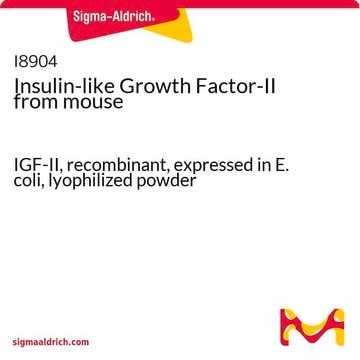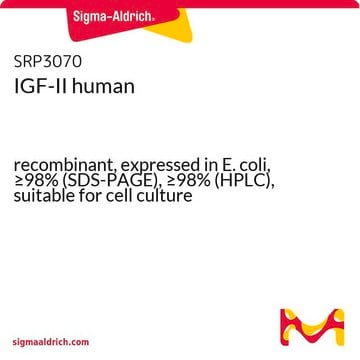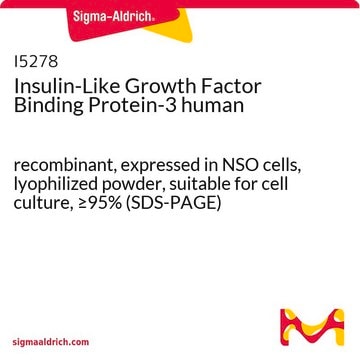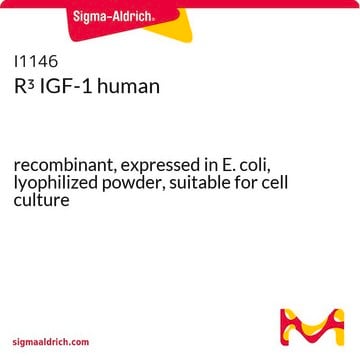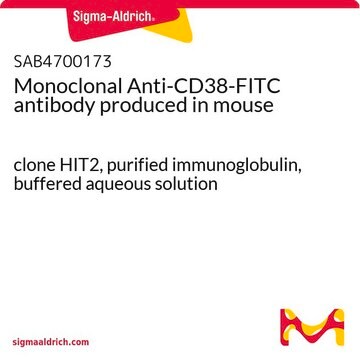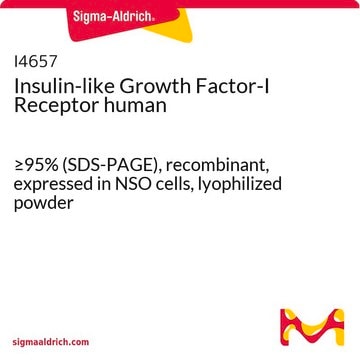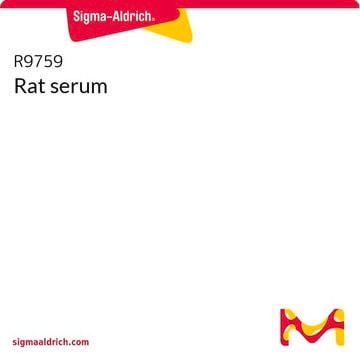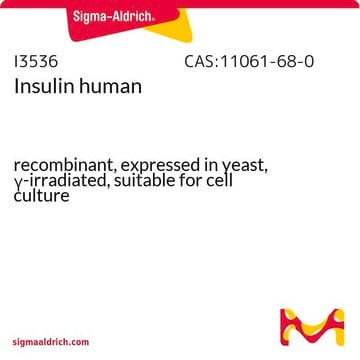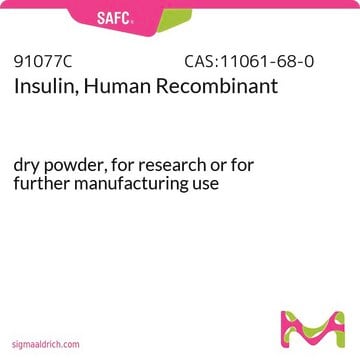I2526
Insulin-like Growth Factor-II human
≥98% (SDS-PAGE and HPLC), recombinant, expressed in E. coli, lyophilized powder, suitable for cell culture
Sinónimos:
IGF-II
About This Item
Productos recomendados
Nombre del producto
Insulin-like Growth Factor-II human, IGF-II, recombinant, expressed in E. coli, lyophilized powder, suitable for cell culture
biological source
human
Quality Level
recombinant
expressed in E. coli
assay
≥98% (SDS-PAGE and HPLC)
form
lyophilized powder
potency
≤2.0 ng/mL ED50
quality
endotoxin tested
mol wt
7.5 kDa
packaging
pkg of 5X50 μg
pkg of 50 μg
technique(s)
cell culture | mammalian: suitable
impurities
≤0.1 EU/μg
UniProt accession no.
storage temp.
−20°C
Gene Information
human ... IGF2(3481)
¿Está buscando productos similares? Visita Guía de comparación de productos
Biochem/physiol Actions
Physical form
Analysis Note
related product
Storage Class
11 - Combustible Solids
wgk_germany
WGK 3
flash_point_f
Not applicable
flash_point_c
Not applicable
ppe
Eyeshields, Gloves, type N95 (US)
Elija entre una de las versiones más recientes:
Certificados de análisis (COA)
¿No ve la versión correcta?
Si necesita una versión concreta, puede buscar un certificado específico por el número de lote.
¿Ya tiene este producto?
Encuentre la documentación para los productos que ha comprado recientemente en la Biblioteca de documentos.
Los clientes también vieron
Artículos
Insulin-like Growth Factors (IGF)
Nuestro equipo de científicos tiene experiencia en todas las áreas de investigación: Ciencias de la vida, Ciencia de los materiales, Síntesis química, Cromatografía, Analítica y muchas otras.
Póngase en contacto con el Servicio técnico